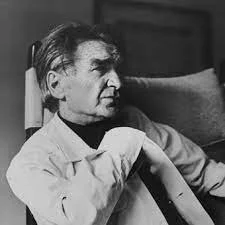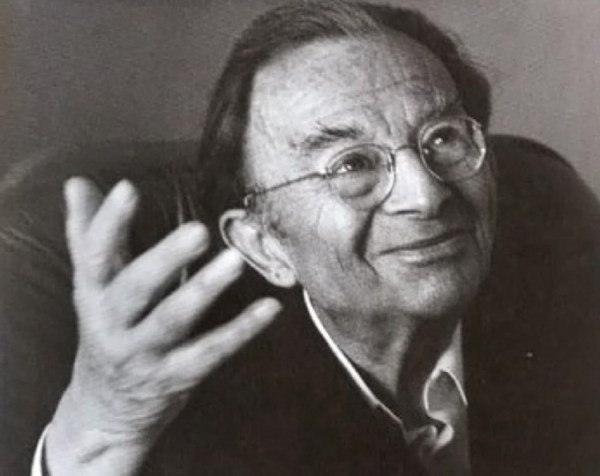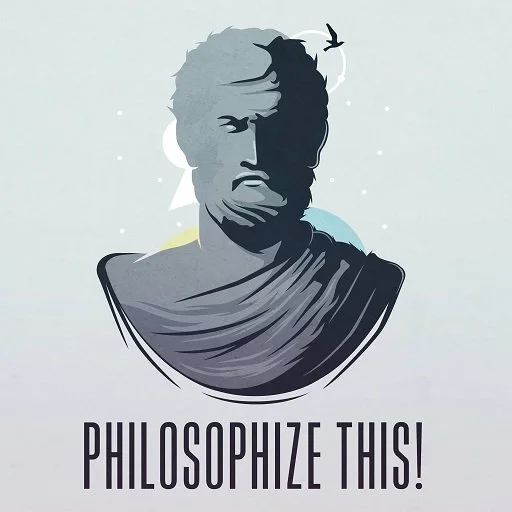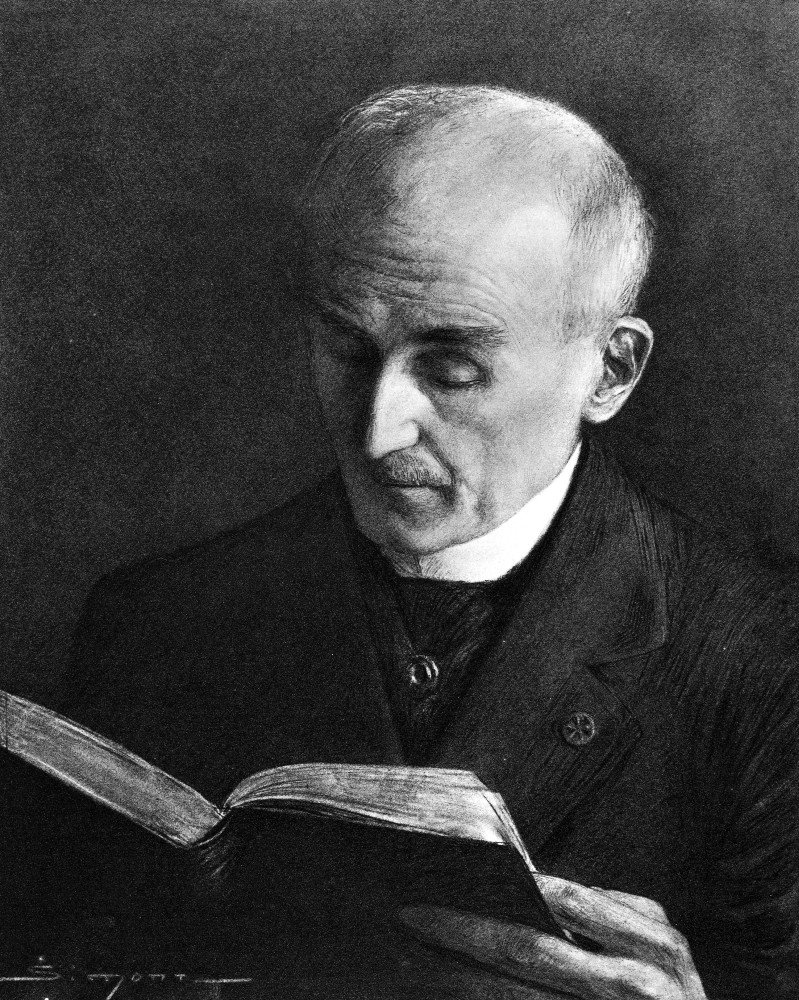Episode #156 - Emil Cioran pt. 2 - Failure and Suicide
Emil Cioran pt. 2
Key Takeaways
Emil Cioran's Writing Philosophy: Cioran utilized writing more as a therapeutic tool than for providing definitive answers or constructing narratives. He conveyed his perceptions of life's absurdity and meaninglessness, finding solace in writing to make these burdensome thoughts more tolerable.
Cioran's Perspective on Failure: He perceived a certain beauty in failure, considering it a fundamental part of human existence. Cioran believed that failure offers a truer self-portrait than success. He advocated for embracing failure to gain a clearer understanding of our real limitations and potential.
The Role of Failure in Decision Making: Cioran emphasized the significant impact of our relationship with failure on our decision-making processes. He contended that avoiding discussions about failure hampers our understanding of it, thus impairing our ability to make well-informed choices.
Cioran's Views on Suicide: Cioran approached the topic of suicide as an existential contemplation rather than a practical solution to life's challenges. He posited that viewing suicide as a solution reflects a shallow comprehension of life's inherent meaninglessness.
Recommended Reading
On the Heights of Despair by E. M. Cioran (1996): This work, originating from intense insomnia, features a young Cioran wrestling with despair, the absurd, and the irrational aspects of existence.
The Trouble with Being Born by E. M. Cioran (2013): In this book, Cioran probes into the human condition, focusing on themes such as birth, death, and the existential paradoxes, presented in his distinctive aphoristic style.
Tears and Saints by E. M. Cioran (1998): Here, Cioran explores mysticism, philosophy, and the enigma of the sacred, examining the convergence of the profound and the perverse.
See the full transcript here.
Thank you to everyone who makes this podcast a possibility in the future.
I could never do this without your support! :)
Episode #155 - Emil Cioran Pt. 1 - Absurdity and Nothingness
Episode 155 - Emil Cioran Pt. 1 - Absurdity and Nothingness
Key Takeaways
Emil Cioran's Philosophy of Existence: Cioran focuses on the darker aspects of human existence, emphasizing ugly and inconvenient truths often ignored by society. He questions the effectiveness of conventional philosophical pursuits, viewing them as futile in addressing the core of human experience.
Rejection of Systematic Thinking: Criticizing traditional philosophical systems and literary formats, Cioran prefers a fragmented, aphoristic style. He views humanity as a 'failed project' and questions the purpose of existence, seeing life as inherently meaningless and absurd.
Approach to Life's Negativities: Cioran explores various strategies people use to cope with life's darker aspects, such as despair and melancholy. He critiques methods like reasoning away, distracting oneself, or accepting these feelings, suggesting they are often dishonest attempts to escape reality.
Embracing Absurdity and Limitlessness: In contrast to pessimism, Cioran advocates for embracing life's absurdity. Accepting the meaningless and absurd nature of existence, according to him, allows one to experience life fully and access limitless possibilities, leading to a unique form of optimism.
Recommended Reading
On the Heights of Despair by E. M. Cioran (1996): This book reflects the youthful Cioran's struggle with themes of despair, absurdity, and the irrationality of existence, born from profound insomnia.
The Trouble with Being Born by E. M. Cioran (2013): Here, Cioran explores the human condition, focusing on birth, death, and the paradoxes of existence in his signature aphoristic style.
Tears and Saints by E. M. Cioran (1998): Cioran delves into themes of mysticism, philosophy, and the strangeness of the sacred, exploring the intersection of the profound and the perverse.
See the full transcript here.
Thank you to everyone who makes this podcast a possibility in the future.
I could never do this without your support! :)
Episode #154 - Pragmatism and Truth
Pragmatism and Truth
Key Takeaways
Questioning Certainty in Philosophy: This part of the podcast delves into the late 19th and early 20th-century philosophical shift. During this period, thinkers began to challenge the pursuit of certainty in truth, a significant departure from the approaches of historical figures like Socrates and Descartes, who were proponents of certainty. The segment reflects on the evolution of philosophical thought and the growing skepticism about whether certainty is truly achievable.
Emergence of Pragmatism: The episode discusses the rise of pragmatism, a movement led by influential thinkers such as Charles Sanders Peirce and William James. This philosophical trend marked a shift from focusing on individual consciousness and the quest for certainty. It advocated for understanding truth in terms of its practical consequences and societal impact, signaling a significant change in the way truth and knowledge were perceived.
Truth as a Social Construct: Explored in the podcast is the pragmatist viewpoint that sees truth as a product of social convergence. This perspective argues that truth is not determined by individual certainty but rather by collective agreement and its usefulness within society. The episode uses the collective belief in the existence of cars as an example to illustrate this concept.
Free Will and Human Action: A key part of the discussion revolves around William James's views on free will and personality types (healthy-minded vs. sick souls). It suggests that our beliefs about free will play a crucial role in shaping our actions and the overall quality of our lives. The segment advocates for a balanced approach between determinism and free will, emphasizing their impact on human behavior and decision-making.
Recommended Reading
Collected Papers of Charles Sanders Peirce: This comprehensive collection encompasses Peirce's vast contributions across various fields, including philosophy, logic, and the theory of signs. It offers a deep dive into the mind of one of the key figures in the pragmatism movement.
Pragmatism By William James: In this seminal work, William James elaborates on his philosophy of pragmatism. He emphasizes the concept that the meaning and validity of any idea are contingent upon its practical consequences, providing insight into his influential perspective on truth and knowledge.
The Varieties of Religious Experience by William James: This book by James explores the individual religious experiences that form the foundation of the world's religious life. Covering topics like conversion, repentance, and mysticism, it offers a unique perspective on the personal dimensions of religion.
See the full transcript here.
Thank you to everyone who makes this podcast a possibility in the future.
I could never do this without your support! :)
Episode #153 - The Frankfurt School - Walter Benjamin Pt. 2 - Distraction
Episode 153 - The Frankfurt School - Walter Benjamin Pt. 2 - Distraction
Key Takeaways:
Relevance of Walter Benjamin's Work Today: The podcast discusses Walter Benjamin's enduring relevance, especially his examination of the relationship between technological innovations and human subjectivity. It highlights how Benjamin's thoughts on the impact of traditional media (film, radio, TV) are applicable to contemporary technologies like the internet and smartphones.
Evolution of Storytelling and Mythology: Benjamin's analysis of storytelling's evolution is explored. Stories transitioned from being orally communicated in a collective setting to a more solitary activity with novels, following the invention of the printing press. This shift reflects the societal transition from collective to individualistic norms.
Impact of Film and Mass Media: The episode delves into Benjamin's perspective on cinema as a "training ground" for modern citizens, illustrating how film creates a collective yet distracted experience. This shift in art consumption, from contemplation to distraction, mirrors broader societal changes.
Art, Politics, and Technology in the Modern World: The podcast examines Benjamin's views on the politicization of art in the era of mass reproduction and how technology mediates our perception of reality. In a capitalist society, art becomes intertwined with politics and economics, altering its nature and purpose.
Recommended Reading
"Walter Benjamin's Archive: Images, Texts, Signs" by Walter Benjamin: This book offers a detailed portrait of Benjamin's intellectual world, including texts, commentaries, and fragments related to everyday life, art, and dreams.
"The Task of The Translator" by Walter Benjamin: An essay that delves into the theory and philosophy of translation. Benjamin argues that a good translation maintains the original's intent and spirit rather than its literal meaning, highlighting the artistic and cultural significance of translation.
See the full transcript here.
Thank you to everyone who makes this podcast a possibility in the future.
I could never do this without your support! :)
Episode #152 - The Frankfurt School - Walter Benjamin Pt. 1
Episode 152 - The Frankfurt School - Walter Benjamin Pt. 1
Key Takeaways
Walter Benjamin's Unique Thought Process: Benjamin's work is a complex tapestry that combines a wide range of ideas. He draws from various sources, such as Kant, Marx, German literary criticism, and Jewish mysticism, to critique 20th-century culture. His approach is unique in how it interweaves these seemingly unrelated concepts.
The Task of the Translator: In his exploration of translation, Benjamin challenges the conventional view that translation is just about converting text from one language to another. He sees translation as an artistic interaction, arguing that the translator's role is not just to make the text accessible or preserve its original content, but to engage with it in a deeper, more artistic way.
Influence of Technology on Art and Experience: Benjamin examines the impact of emerging technologies like photography on human experience and perception. He contrasts photography with its predecessor, painting, noting how photography democratizes the representation of reality. However, he also highlights a loss in the 'aura' or the unique experience of art due to this technological shift.
The Era of Mechanical Reproduction: This aspect of Benjamin's thought concerns the effects of mass-reproducible technologies on art and culture. These technologies alter the way art is experienced and redefine its very nature. This leads to a transformation in cultural and self-perception, a theme explored in depth in a podcast dedicated to Benjamin's ideas.
Recommended Reading
Walter Benjamin's Archive: Images, Texts, Signs by Walter Benjamin
This book offers an in-depth look into Benjamin's collection of texts, commentaries, and artifacts. It provides a detailed portrait of his intellectual world, showcasing the breadth and depth of his thoughts and influences.
Walter Benjamin and the Demands of History by Michael P. Steinberg
Steinberg's work examines the interplay between history and historical practice in Benjamin's theories. It links Benjamin's historical and theoretical approaches to contemporary issues, offering a modern perspective on his ideas.
See the full transcript here.
Thank you to everyone who makes this podcast a possibility in the future.
I could never do this without your support! :)
Episode #151 - The Frankfurt School - Erich Fromm on Freedom
Erich Fromm on Freedom
Key Takeaways:
Development of Individualism: Fromm compares the evolution of human society to the growth of a child, highlighting a move from dependence to independence. This individuation process, seen through historical stages from pre-civilization to modern society, reflects an increase in personal freedom and responsibility.
Freedom’s Double-Edged Nature: Fromm argues that increased individual freedom, while providing autonomy and choice, also brings isolation and anxiety. This duality is evident in modern society, where people enjoy unprecedented personal freedoms but also face the burden of making meaningful choices alone.
Negative vs. Positive Freedom: Fromm distinguishes between negative freedom (freedom from external constraints) and positive freedom (freedom to act on one's own will). He suggests that true freedom requires a balance of both, emphasizing the importance of using our autonomy to foster connections and meaningful actions.
Escape from Freedom: Fromm identifies ways people escape from the challenges of freedom: authoritarianism (seeking power or submission), destructiveness (acting against life and change), and automaton conformity (blindly following societal norms). These escapes represent a retreat from the responsibilities of freedom and individuality.
Recommended Reading:
Escape from Freedom by Erich Fromm (1994): This book explores the psychological challenges associated with the transition from traditional societies to modern freedom, and how this shift can lead to authoritarianism.
"The Art of Loving" by Erich Fromm: A profound analysis of love as an art that must be actively practiced and developed, rather than a passive feeling. Fromm explores how love, in its various forms including romantic love, familial love, and self-love, is an expression of one's life and a key to human fulfillment.
The Essential Fromm: Life Between Having and Being by Erich Fromm (2014): This work encapsulates Fromm's views on achieving a fulfilling life, focusing on the dichotomy between 'having' and 'being', and the art of living well.
See the full transcript here.
Thank you to everyone who makes this podcast a possibility in the future.
I could never do this without your support! :)
Episode #150 - The Frankfurt School - Erich Fromm on Love
Erich Fromm on Love
Key Takeaways:
The Problem of Human Existence and Separateness: Erich Fromm posits that a fundamental issue in human existence is the feeling of separateness or existential loneliness. This awareness of being separate from others and the universe drives people to seek connections beyond themselves, often through love, to alleviate this sense of isolation.
Transactional vs. Genuine Love: The podcast explores the difference between transactional love (where love is treated as a commodity in a personality market) and genuine love. Fromm criticizes the former as being about mutual benefit and not true love, suggesting it leads to relationships that are shallow and likely to fail.
Love as an Active Faculty: Fromm argues that love should be viewed not as a passive emotion that happens to someone, but as an active faculty, a skill that can and should be developed. True love involves a constant, active effort to connect and care for others.
Mastering the Art of Love: The episode discusses Fromm's view of love as an art form that requires dedication and practice, similar to mastering any skill. He emphasizes the importance of humility, courage, faith, and discipline in developing the ability to love genuinely and deeply.
Recommended Reading:
Escape from Freedom by Erich Fromm (1994): This book explores the psychological challenges associated with the transition from traditional societies to modern freedom, and how this shift can lead to authoritarianism.
"The Art of Loving" by Erich Fromm: A profound analysis of love as an art that must be actively practiced and developed, rather than a passive feeling. Fromm explores how love, in its various forms including romantic love, familial love, and self-love, is an expression of one's life and a key to human fulfillment.
The Essential Fromm: Life Between Having and Being by Erich Fromm (2014): This work encapsulates Fromm's views on achieving a fulfilling life, focusing on the dichotomy between 'having' and 'being', and the art of living well.
See the full transcript here.
Thank you to everyone who makes this podcast a possibility in the future.
I could never do this without your support! :)
Episode #149 - On Media Pt. 2 - Marshall McLuhan
Marshall McLuhan
Key Takeaways
Media as Extensions of Ourselves: McLuhan argues that media and technology are extensions of human capabilities and consciousness. For example, a telescope extends our eyesight, and a hammer extends our physical strength. These extensions alter our interaction with the world and shape our human experience.
The Impact of Written Language: The transition from oral to written communication had profound effects on human society. McLuhan highlights how written language, as a form of media, altered perception, bringing about a more linear, structured way of thinking, differing from the communal and participatory nature of oral traditions.
Hot and Cool Media: McLuhan categorizes media into 'hot' and 'cool' forms based on the level of audience participation and the amount of information provided. Hot media, like books and radio, require less audience involvement, while cool media, like TV or seminars, demand more engagement from the audience.
Global Village and Electric Age: McLuhan predicted the rise of a 'global village' through electric media, extending our entire nervous system. This new age of instant communication and interconnectedness would contrast starkly with the individualism of the literate age, bringing both opportunities and challenges.
Recommended Reading
Understanding Media: The Extensions of Man by Marshall McLuhan (2003): This reissue of McLuhan's 1964 expose delves into the then-emerging phenomenon of mass media, exploring how media acts as extensions of the human mind and body.
The Gutenberg Galaxy: The Making of Typographic Man by Marshall McLuhan (1962): This book offers a revolutionary look at the impact of print culture on Western society and introduced the concept of the global village.
See the full transcript here.
Thank you to everyone who makes this podcast a possibility in the future.
I could never do this without your support! :)
Episode #148 - On Media Pt. 1 - Manufacturing Consent
Manufacturing Consent
On this episode, we begin our discussion on the work of Noam Chomsky.
See the full transcript here.
Thank you to everyone who makes this podcast a possibility in the future.
I could never do this without your support! :)
Episode #147 - Being and Becoming
Being and Becoming
On this episode, we talk about the classic philosophical debate of being vs becoming.
See the full transcript here.
Thank you to everyone who makes this podcast a possibility in the future.
I could never do this without your support! :)
Episode #146 - Bergson on Laughter Pt. 2 - Vitalism
Henri Bergson on laughter
On this episode, we begin our discussion on the work of Henri Bergson.
See the full transcript here.
Thank you to everyone who makes this podcast a possibility in the future.
I could never do this without your support! :)
Episode #145 - Henri Bergson Pt. 1 - History
Henri Bergson
On this episode, we begin our discussion on the work of Henri Bergson.
See the full transcript here.
Thank you to everyone who makes this podcast a possibility in the future.
I could never do this without your support! :)
Episode #144 - Max Weber - Iron Cage
Max Weber
On this episode, we begin our discussion on the work of Max Weber.
See the full transcript here.
Thank you to everyone who makes this podcast a possibility in the future.
I could never do this without your support! :)
Episode #143 - Jürgen Habermas - The Public Sphere
Episode 143 - Jürgen Habermas - The Public Sphere
On this episode, we begin our discussion on the work of Jürgen Habermas.
See the full transcript here.
Thank you to everyone who makes this podcast a possibility in the future.
I could never do this without your support! :)
Episode #142 - Richard Rorty
Richard Rorty
On this episode, we begin our discussion on the work of Richard Rorty.
See the full transcript here
Thank you to everyone who makes this podcast a possibility in the future.
I could never do this without your support! :)
Episode #141 - Isaiah Berlin pt. 2 - Pluralism and Culture
Isaiah Berlin pt. 2 - Pluralism and Culture
On this episode, we continue our discussion on the work of Isaiah Berlin.
See the full transcript here
Thank you to everyone who makes this podcast a possibility in the future.
I could never do this without your support! :)
Episode #140 - Isaiah Berlin pt. 1 - Pluralism
Isaiah Berlin Part 1 - Pluralism
On this episode, we begin our discussion on the work of Henri Bergson.
See the full transcript here.
Thank you to everyone who makes this podcast a possibility in the future.
I could never do this without your support! :)
Episode #139 - Friedrich Von Hayek - The Road to Serfdom
Friedrich Von Hayek
On this episode, we begin our discussion on the work of Henri Bergson.
See the full transcript here.
Thank you to everyone who makes this podcast a possibility in the future.
I could never do this without your support! :)
Episode #138 - Robert Nozick - The Minimal State
Robert Nozick - The Minimal State
On this episode, we begin our discussion on the work of Robert Nozick.
See the full transcript here
Thank you to everyone who makes this podcast a possibility in the future.
I could never do this without your support! :)
Episode #137 - John Rawls - A Theory of Justice
John Rawls - A Theory of Justice
On this episode, we begin our discussion on the work of John Rawls.
See the full transcript here.
Thank you to everyone who makes this podcast a possibility in the future.
I could never do this without your support! :)



































